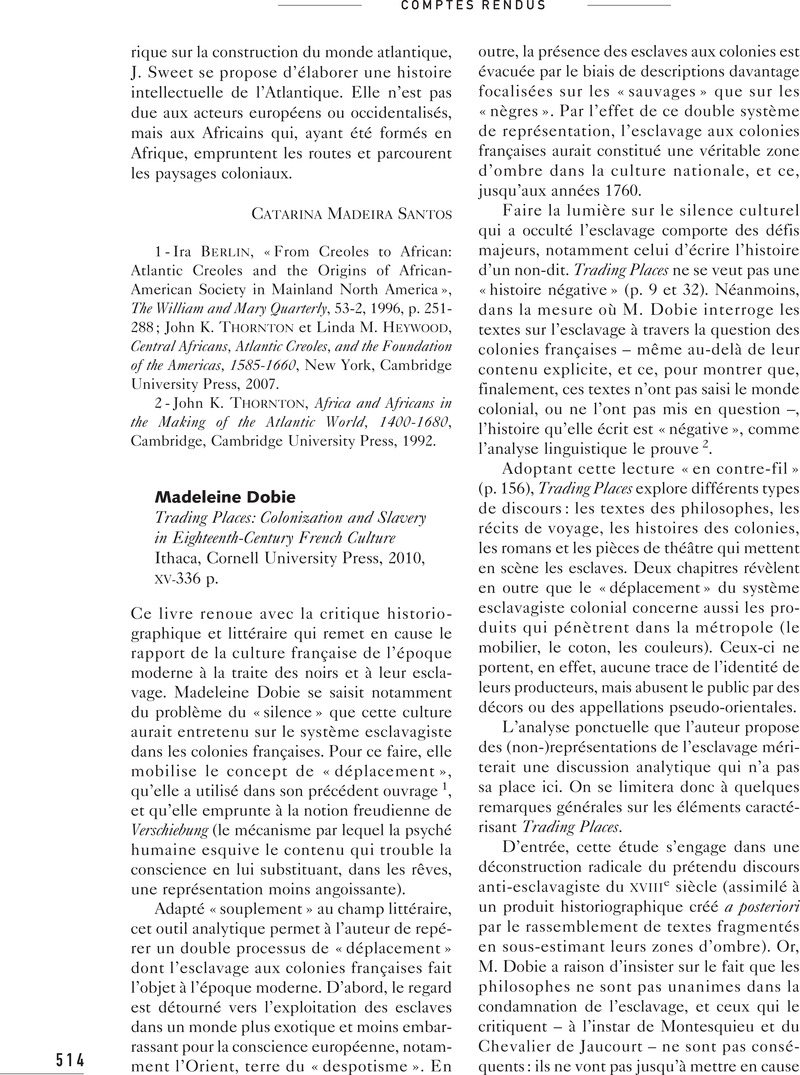No CrossRef data available.
Article contents
Madeleine Dobie Trading Places: Colonization and Slavery in Eighteenth-Century French Culture Ithaca, Cornell University Press, 2010, Xv-336 p.
Published online by Cambridge University Press: 20 January 2017
Abstract

- Type
- Mondes atlantiques (comptes rendus)
- Information
- Copyright
- Copyright © Les Éditions de l’EHESS 2012
References
1 - Madeleine, Dobie, Foreign Bodies: Gender, Language, and Culture in French Orientalism, Stanford, Stanford University Press, 2001, p. Xii, 4-5, 17–20 et 38-43.Google Scholar
2 - A titre d’exemple: « When we begin to consider Bernardin's staging of slavery from the perspective of what it doesn't represent […] » (p. 59); «Du Tertre does not fundamentally questions […] » (p. 133); « […] Labat does not challenge this perspective » (p. 144); « Cleveland does not make the connection » (p. 157); « this colonial order is not represented » (p. 161); « There is no discussion of what […] » (p. 165).
3 - Miller, Christopher L., The French Atlantic Triangle: Literature and Culture of the Slave Trade, Durham, Duke University Press, 2007.CrossRefGoogle Scholar
4 - Garraway, Doris, The Libertine Colony: Creolization in the Early French Caribbean, Durham, Duke University Press, 2005.CrossRefGoogle Scholar




